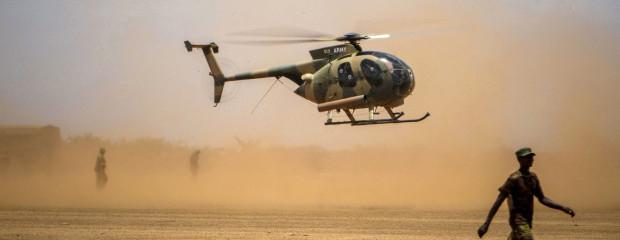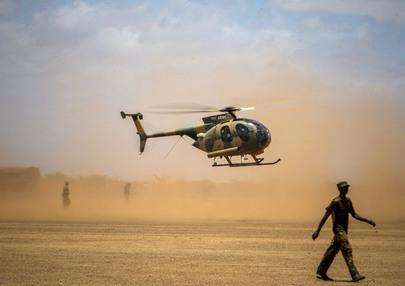Westgate attack puts Al Shabaab top of the global jihadist premier league


The Kenyan military was successful in its invasion of southern Somalia, but has been less so in its suppression of Al Shabaab’s terror tactics (UN photo library).
Noman Benotman, President of the anti-radicalisation Quilliam Foundation, has told African Arguments that Al Shabaab’s Westgate attack has put it “to the top of the premier league” of global jihadists. Benotman, formerly a commander in the Libyan Islamic Fighting Group, compared the Westgate events with those of the In Amenas Algerian hostage incident in January 2013: “It is almost exactly the same source of tactics as the In Amenas attack, the same planning – from a professional perspective.”
Benotman added that he “would not be surprised” if another Al Shabaab operation took place in the next 48 hours in, for example, Uganda or Tanzania.
In both the In Amenas and Westgate attacks, westerners were targeted to create maximum international impact and bring an affiliate of Al Qaeda to global attention. Benotman asserts that prior to Westgate Al Shabaab had been viewed at “the lowest level” by other jihadist organisations, but the attack will have made groups from Yemen to Pakistan “happy, jealous and they will start to appreciate them [Al Shabaab].”
This is particularly significant for Al Shabaab at this time because it will strengthen the leadership of the radical Ahmed al Godane, of the ‘internationalist’ wing of the movement, who goes under the nom de guerre “˜Abu Zubeyr.’ Godane recently consolidated his position as Al Shabaab’s commander after an internal purge which saw potential rivals Ibrahim “˜al-Afghani’, Omar Hamami, Mukhtar Robow and the group’s spiritual leader, Sheikh Hasan Dir Aweys, either killed or chased out of the movement.
Benotman says that “it’s now extremely difficult for anyone to challenge the leadership of the group.” This new leadership has broken with the original islamist leaders in Somalia, who “reshaped themselves as stakeholders of the Somalia conflict.”
The Westgate attack will also serve as a recruitment tool for Al Shabaab. After staging this kind of spectacle “people will come looking for you.”
Benotman criticised the Kenyan government’s handling of the hostage situation, particularly their “˜pre-incident training’, which “we used to think [they] were very good at” after experience from incidents in 2002. After this, the US invested heavily in terrorist training and equipment in Kenya, which is the “cornerstone” of the security architecture in the region.
Benotman states that the Kenyans are “very good from a military perspective, but it’s different when you come to asymmetric warfare” which is totally different from, for example, the military operations in Somalia where they went in with massive fire power and were faced with fighters armed only with AK47s.
The Kenyan counter-terrorism strategy, says Benotman, is “stuck in the old mindset of intensive labour…they have a lot of people, but they were not effective.” This has been “a disaster” for the Kenyans.
Interview by Magnus Taylor – Editor, African Arguments.






